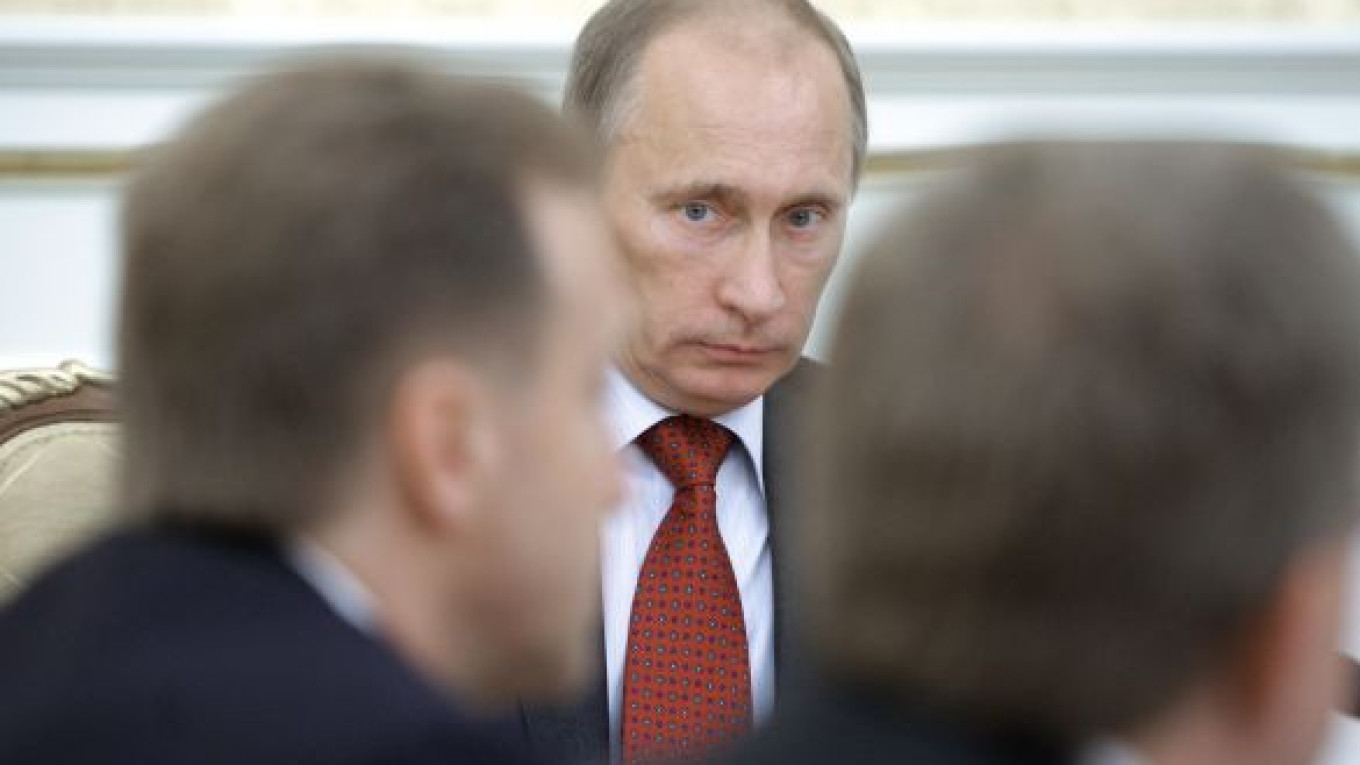Belarus raised the transit fees for Russian oil products through its territory on Thursday, in a move seen as last-minute maneuvering ahead of its accession to a customs union with Russia and Kazakhstan.
Belarus increased transit fees on oil products 12.7 percent to $1.6 a metric ton per 100 kilometers starting from July 1, the country's Economic Ministry said, RIA-Novosti reported.
Belarus has so far refused to publicly ratify a Unified Customs Code, even as the new rules went into effect on Thursday, because it had been holding out for Russian concessions on canceling its oil export duties.
By hiking the transit fees, Belarus may be trying to extract some form of compensation as it now sees no hope of getting Russia to cancel the oil export duties, said Tatyana Stanovaya, a politician with the Center of Political Technologies.
Stanovaya said the issue was a matter of principal for Moscow, while Belarus had to save face and fill a budget gap that has appeared because of its inability to re-export oil at a profit.
The transit fee increase is the second one this year, coming after a 4.4 percent hike on Jan. 1.
Belarus said Wednesday that whether or not it joins the customs union depended on Russia's position on oil product duties. Minsk has said it will announce its final decision by July 5.
The conflict over oil duties has been a sticking point in Russian-Belarussian relations. Some have speculated that Belarus' refusal to pay higher prices for Russian gas — a move that led Gazprom to reduce gas to the country for three days earlier this month —? was an attempt to get Moscow to renege on its oil tariff position.
But while hiking the transit fees may have allowed Belarus to save face, it is unlikely to do much to close their budget gap, said Nikolai Petrov, a political scientist at the Carnegie Moscow Center.
Russia and Belarus are likely to hold closed-door talks on the customs union, and their results may be announced at the Eurasian Economic Community summit in Astana on July 5, Petrov said.
Prime Minister Vladimir Putin said Thursday that Russia still expected to see Belarus as part of the customs union.
"I think it's important for us to start work in the trilateral format with the active participation of our Belarussian partners. Russia is counting on such a full-fledged mutually beneficial cooperation," he said at a meeting of the presidium, according to a transcript on the government web site.
First Deputy Prime Minister Igor Shuvalov said at the meeting that Russia was "in daily contact with our Belarussian colleagues."
Despite Belarus' high-profile waffling, a decision may have already been made.
Media reports cited sources in the parliament saying the Belarussian parliament had already secretly ratified the Unified Customs Code at a closed-door session late Wednesday.
A spokesman for the Belarussian parliament said he could neither confirm nor deny the information, since the press service hadn't received any official position on the issue.
Ratifying the Customs Code wasn't included in the agenda of the parliament's meeting on Wednesday, he told The Moscow Times.
A Message from The Moscow Times:
Dear readers,
We are facing unprecedented challenges. Russia's Prosecutor General's Office has designated The Moscow Times as an "undesirable" organization, criminalizing our work and putting our staff at risk of prosecution. This follows our earlier unjust labeling as a "foreign agent."
These actions are direct attempts to silence independent journalism in Russia. The authorities claim our work "discredits the decisions of the Russian leadership." We see things differently: we strive to provide accurate, unbiased reporting on Russia.
We, the journalists of The Moscow Times, refuse to be silenced. But to continue our work, we need your help.
Your support, no matter how small, makes a world of difference. If you can, please support us monthly starting from just $2. It's quick to set up, and every contribution makes a significant impact.
By supporting The Moscow Times, you're defending open, independent journalism in the face of repression. Thank you for standing with us.
Remind me later.


